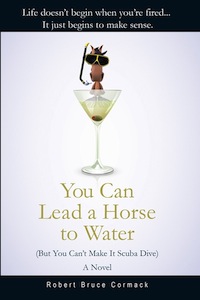Is It "Hon" or "Hun"?
In honour of Women's Day, let's see which is more offensive.

“Life is tough, darling, and we’d better laugh at everything; otherwise, we’re going down the tube.” Joan Rivers
This is one of my favourite quotes, and possibly one of the wisest, particularly today because it’s Women’s Day—or was Women’s Day—and many serious issues are being discussed like equality and respect. I thoroughly support a woman’s right to equality and respect, which makes it imperative, in my humble opinion, to clear up this whole business about “hon” and “hun.”
It seems both can be offensive, especially in the workplace where you’d think people would know the difference between being friendly exchange and being fresh. Not that I know the difference, but I’ve researched people who supposedly do, so I’m going to leave it to them, because, as my wife says, I’m a typical male with one foot in my mouth and another in a shallow grave.
Emily took to LinkedIn last year with a lambast called: “I Am Not Your Babe,” which drew considerable attention and some amount of scorn.
So let’s start with Emily Lyons, CEO of Femme Fatale Media Group Inc., and other organizations, including Lyons Elite Luxury Matchmaking. Emily took to LinkedIn last year with a lambast called: “I Am Not Your Babe,” which drew considerable attention and some amount of scorn.
“I have a simple question:” she started out, “when did it become acceptable workplace behavior for men to call businesswomen “hun” or “babe” or “darling” or any other such demeaning pet names?”
Well, that’s a good opening. A salvo across the foredeck always works. Especially when it’s followed by Emily recounting an incident where a man called her “hun” on the phone. It’s not often you get referred to as a German nomad responsible for killing Catholics. Who wouldn’t get upset?
I remember a waitress in Florida calling me, “Hon,” like, “Would you like pie today, hon?” Somehow I don’t think she was calling me a German Catholic killer, but maybe I was lucky enough — or smart enough — not to order pie or be a Catholic. Still, you have to watch your back every second these days.
Anyway, Emily got a lot of support from women agreeing that it can be very annoying being a femalepreneur in today’s society. One woman, Courtney Rosebush, pointed out that everyone, men and women alike, should be recognized for their talents as workers and business people. “Pet names and terms of endearment should not enter in the equation, even if the person means well.”
“Because I’m a CEO. Entrepreneur. Dream builder, Innovator. But I am not your hun.”
She didn’t exactly go as far as Emily, who said, “It’s time — actually, it’s far past time — for this kind of lecherous behavior to end for good….Because I’m a CEO. Entrepreneur. Dream builder, Innovator. But I am not your hun.”
And more power to Emily for being so forward with her credentials. As she pointed out, it’s particularly difficult for women in the modeling industry to be taken seriously while making advances in business and entrepreneurship. “Because apparently if you’re a model your hot shots are the only thing you are in the eyes of some people.”
She’s got a point, and a lot of women were quick to agree, until one woman asked: “Does the same go for women to women interaction?” Emily replied that it depends on your relationship and how well you know each other and what capacity you are working in. Fair play. You should be pretty familiar with someone before you start calling them “hun.” Even Germans know that.
One commenter, Bruce Beswick, took exception, pointing out that a senior officer at his company — female — called someone “Hon” when she squeezed past them in the hall. He was pretty sure she said “Hon” and not “Hun,” but, as Bruce, pointed out, “It does seem everyone is looking to be offended today.”
I’m sure it’ll be a big help in her latest matchmaking service venture (where everyone’s honest).
Fortunately, nobody took Emily to task on that, figuring, I suspect, she was using the phonetic “Hun” as opposed to the shortened form of “honey.” The general comments, though, praised her honesty. I’m sure it’ll be a big help in her latest matchmaking service venture (where everyone’s honest).
This still doesn’t answer the question of which is worse, being called “hon” or “hun,” with most people telling me it’s a stupid question, since they both sound the same. What’s more important, again from subjects I talked to, is who’s saying it, a distinction examined in Vogue Magazine.
It seems, if you’re old, and you say “hon,” or “hun,” you’re afforded some leniency because you’re possibly senile or sweet. “When older people use it out in the world,” one editor noted,” it’s endearing and it reminds me of my grandpa.” You can also get away with calling women “love,” or “sweetie,”since, if you’re senile, you could be talking to the cat.
On the flip side, if you’re younger—and obviously not senile or talking to your cat—these terms of endearment are considered disrespectful and annoying. As another editor explained, “It reminds me of Austin Powers,” she said, “which I realize is meant to be funny, but if it doesn’t come with bad teeth, I take it as flippant or sarcastic, like ‘Hon, I think you missed my point.’”
In fact, the only reason she’s including “Hon,” is because she’s about to call me something worse if I don’t get her point pretty damn quick.
Now, I get that, because my wife frequently says, “Hon, you missed my point.” Somehow, though, I don’t think she’s being flippant or sarcastic. She’s quite serious when she says it, because I have missed her point. In fact, the only reason she’s including “Hon,” is because she’s about to call me something worse if I don’t get her point pretty damn quick.
In general, though, I think it’s fair to say, “Hon,” and “Hun,” both exist in a time gone by, meaning they no longer embellish a conversation or a text. They strike a rather awkward nerve. Unless you know the person quite well—or you’re old like me, and nobody cares because you probably think you are talking to your cat—then it’s best to leave these words alone.
My cat’s name is Katerina, but if I call her Kat, she doesn’t come within a mile of me.
Maybe here’s a good rule of thumb, to keep you out of the weeds, so to speak. If you need a term of endearment, use a first name, and never shorten it unless the person doesn’t mind a shortened form. My cat’s name is Katerina, but if I call her Kat, she doesn’t come within a mile of me.
Admittedly, she’s a cat, but it’s a slippery slope, and if you start pissing off a cat, it isn’t long before you’re pissing off people, especially women.
I hope I’ve contributed to Women’s Day in constructive way, and hopefully we can rid of silly terms of endearment like “Hon” and “Hun,” bringing equality and respect to the workplace—and homes.
By the way, if you see my cat, I’ve left some food outside the door with her full name on the bowl turned outwards. Tell her I’m truly sorry.
She won’t believe that, but I am.
Robert Cormack is a novelist, journalist and blogger. His first novel “You Can Lead a Horse to Water (But You Can’t Make It Scuba Dive)” is available online and at most major bookstores. Check out Robert’s other articles and stories at robertcormack.net or join https://robertcormack.medium.com/membership

in Café beBee
Articles from Robert Cormack
View blog
A short story about winning, losing and small engine repair. · “A man is not finished when he’s defe ...

The Clint Eastwood School of Writing. · “Hard writing makes easy reading. Easy writing makes hard re ...

And why I feel gritty about the future. · “The veterans have brought their own pennants, bicycles, f ...
Related professionals
You may be interested in these jobs
-
computer network technician
Found in: Talent CA 2 C2 - 2 days ago
Expert solution Inc Brampton, CanadaEducation: · Expérience: · Education · College/CEGEP · Tasks · Maintain, troubleshoot and administer the use of local area networks (LANs), wide area networks (WANs), mainframe networks and computer workstations and peripheral equipment · Evaluate and install computer hardware, ...
-
graphic designer
Found in: Talent CA 2 C2 - 1 hour ago
Danica Imports Ltd. Vancouver, CanadaEducation: College, CEGEP or other non-university certificate or diploma from a program of 1 year to 2 years · Experience: 1 year to less than 2 years · Work Term: Permanent · Work Language: English · Hours: 30 to 35 hours per week · ...
-
financial manager
Found in: Talent CA 2 C2 - 2 days ago
1000250098 Ontario Inc. Mississauga, CanadaEducation: Bachelor's degree · Experience: 2 years to less than 3 years · Tasks · Plan and control budget and expenditures · Establish and implement policies and procedures · Train, direct and motivate staff · Assign, co-ordinate and review projects and programs · Design and mana ...




Comments
Robert Cormack
2 years ago #3
We have so many ex-pats in advertising here, Ken, calling someone ‘mate’ seems almost natural. I think I even started developing a Scottish accent back in the 80s after seeing “Local Hero” and “Gregory's girl.” Having a Scottish ancestry probably had something to do with it as well. You can't swing a cat in any university there without hitting a Cormack. Then there's the Irish ancestry where we lost the “Mc” back in the 1300s landing an establishing ourselves in the Orkneys. A buddy of mine (Hughes) went there one time, visiting an old graveyard where he found Cormack and Hughes gravestones side by side. That's when I started saying “Jesus wept" a lot.
Ken Boddie
2 years ago #2
I’ve always considered terms of endearment such as ‘hon’, ‘darl’, ‘my dear’, or ‘pet’ as socially and background associated, when used in public, rather than with intimate family. I agree that there is no place for them in a professional environment, unless the users have been engaged in extracurricular activity in the store room. Throw in ‘mate’, which is liberally used here in Oz, and you can see how such general words of endearment can cause confusion or even offence outside the bedroom. Personally, I use ‘mate’ a lot, as it avoids me remembering what the other person’s name is, an essential aid at my time of life. Just to be clear, however, if I call you or anyone else on this platform, ‘mate’, whether male or female, then this is not an indication that I wish to have, am having, or have had mating activities with you in the broom cupboard. It’s purely a sign of my professional or social fellowship (I’d use mateship but this too has a potential double entendre), or else I’m going senile and genuinely can’t remember your name, Charlie.
John Rylance
2 years ago #1
I dislike it when people call someone they hardly know my darling particularly when they pronounc it dahling.
I often think the reply should be I'm not never have been never will be your darling.